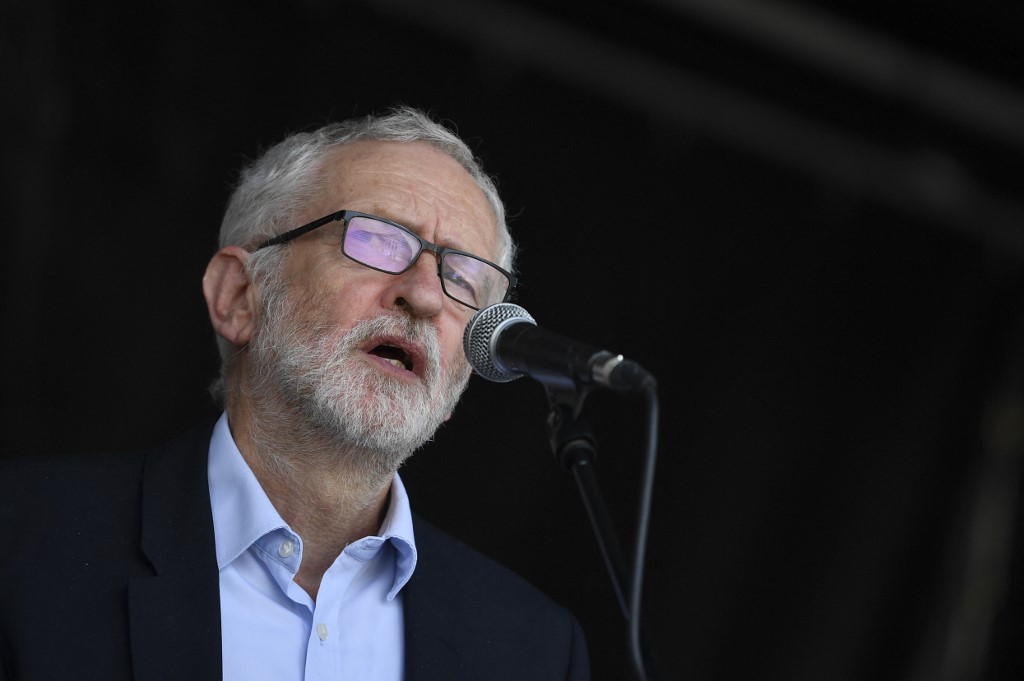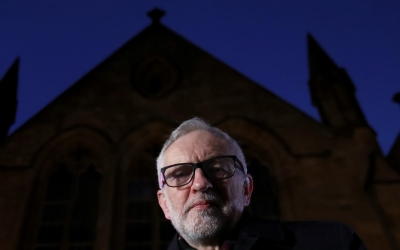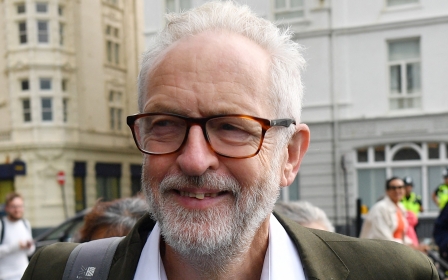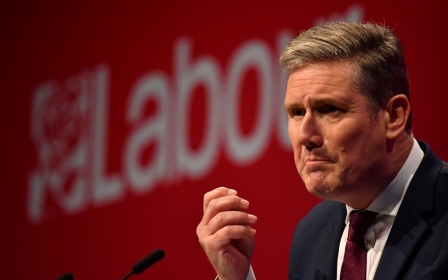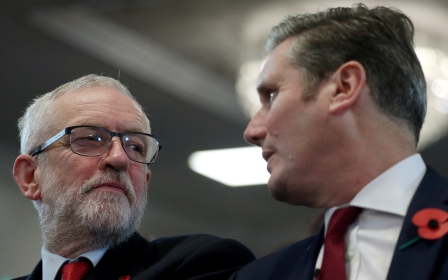Al Jazeera's Labour Files has blown a hole in the British media's Corbyn narrative
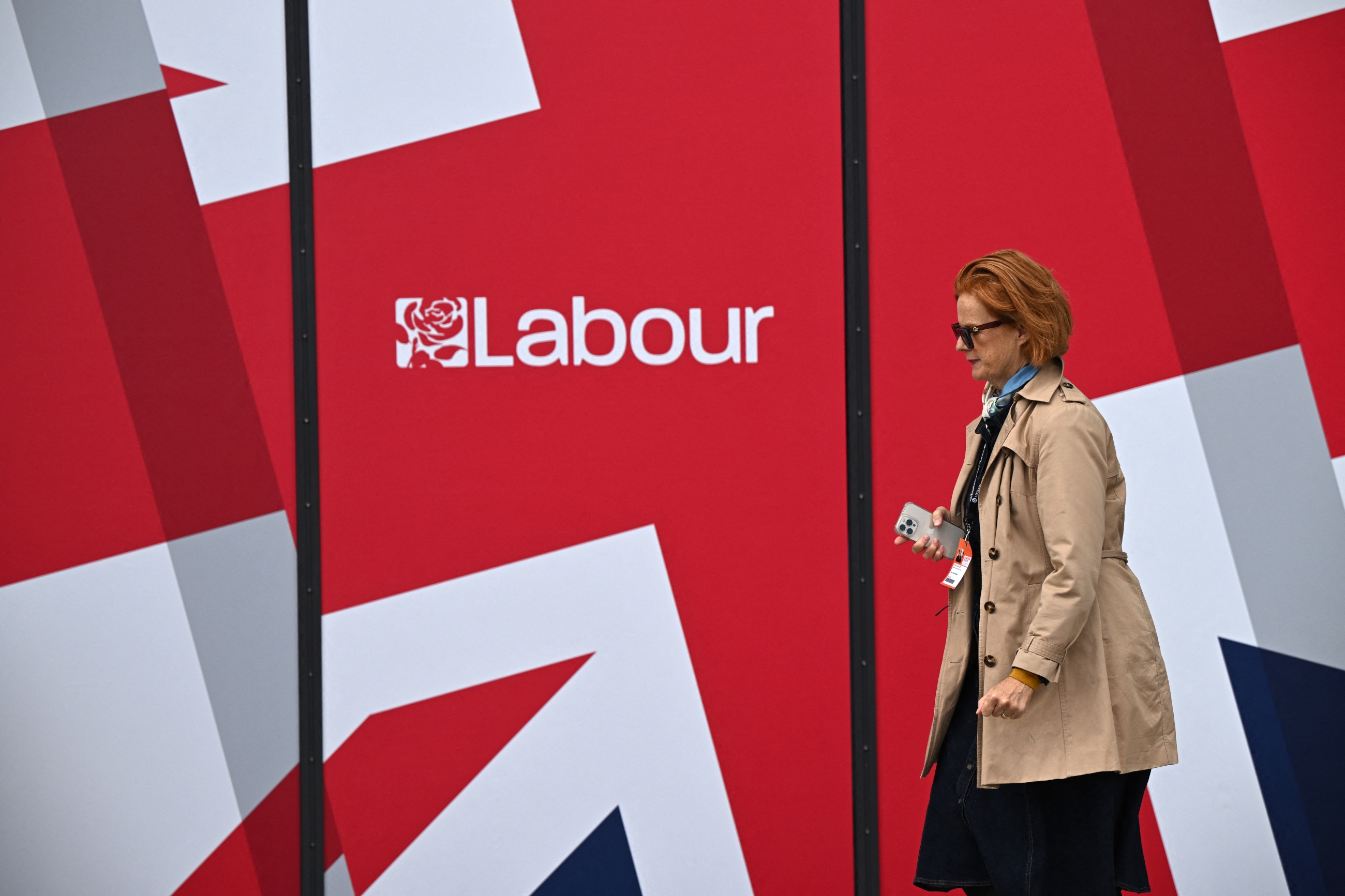
In the years leading up to the 2019 general election, the British media ran a powerful and unremitting campaign that questioned the fitness for office and motivation of Jeremy Corbyn. The most damaging claim was that he turned a blind eye or tolerated antisemitism inside the Labour Party.
This narrative often dominated front pages for days on end, and occasionally led coverage on the BBC and other news channels. There is little doubt that these charges inflicted real and lasting damage on the Labour leader, and played an important role in his crushing defeat in the last general election.
Over the past week, the Qatar-based media network Al Jazeera has challenged conventional wisdom about the Corbyn years by broadcasting a three-part documentary series alleging that many of the claims made against Corbyn’s Labour Party were either false, fabricated or twisted against him. At the same time, it vindicates those around Corbyn against claims that they were lax in dealing with antisemitism.
The papers that banged on day after day, and month after month, on allegations that Corbyn was a racist have all but ignored the Al Jazeera reports
No-one, least of all Corbyn, denies this was a problem inside Labour at the time. But the overriding message of the Al Jazeera series is that a great deal of British media reporting during the Corbyn era was false, particularly the terrible claim that members of the Labour leader’s inner team intervened in disciplinary processes to protect friends and allies from antisemitism charges.
I should declare an interest. Though not involved in making the films, I crop up in all three Al Jazeera documentaries in the role of an expert commentator. Though I found much of what I was presented with as shocking, it goes without saying that viewers should apply their own critical faculties.
New MEE newsletter: Jerusalem Dispatch
Sign up to get the latest insights and analysis on Israel-Palestine, alongside Turkey Unpacked and other MEE newsletters
It is noteworthy that many of those on the other side of the argument are not represented in the films, though they were offered the right to reply. But if its overall thesis is correct, the entire history of the Labour Party over the last seven years will need to be recast, and Corbyn himself should be seen as the largely innocent victim of a media witch hunt, rather than the rancid antisemitism enabler portrayed in the run-up to the 2019 election and thereafter.
Concrete examples
Surprisingly, the mainstream media has scarcely reported on the series at all. When I checked on Tuesday night, I found only a handful of articles, mostly in regional media. The papers that banged on day after day, and month after month, on allegations that Corbyn was a racist have all but ignored the Al Jazeera reports. The same applies to the BBC, which played a major role in framing the understanding of Corbyn and antisemitism in the run-up to the 2019 election.
The BBC Panorama report of July that year played a particularly important role, because it provided what appeared to be shocking evidence that people close to Corbyn intervened in the disciplinary process. Those watching the Panorama programme, after the newspaper reporting that preceded it, might have concluded that it was not just reckless, but actually immoral to vote Labour in the general election.
Al Jazeera also alleges that Panorama reflected only one side of the divided Jewish community, failing to speak with supporters of the pro-Corbyn Jewish Voice for Labour group.
The second episode of the Al Jazeera series examines that Panorama programme in detail. It alleges that in its reporting of allegations made by various former Labour Party staffers, Panorama, the BBC's premier investigative current affairs programme misrepresented certain facts and made claims that cannot be substantiated.
Some examples of this alleged misrepresentation are painful to watch. According to one of the Panorama interviewees, one witness in a Labour antisemitism case asked the investigator whether he was from Israel. Al Jazeera tracked down the witness, who categorically denied that such a remark was ever made and provided a tape as evidence.
I can’t stress too strongly that it is the job of any responsible journalist to view what Al Jazeera has to say sceptically. But even if Al Jazeera’s reporting is rejected, it deserves a reply.
And this should be easy to do. Al Jazeera has not launched an abstract, generalised attack on BBC reporting. It has provided concrete examples involving real people, where it alleges the BBC misreported the facts. If Al Jazeera got something wrong, it should be a very simple matter for Panorama and the BBC to come out and issue a rebuttal.
Media silence
Alternatively, if Al Jazeera is right, the BBC should come out and say so. All journalists and news organisations make mistakes, and it is important to acknowledge them. So far, beyond a handful of bland statements and a confirmation that it stands by its reporting, the BBC has not responded to any of the concrete allegations. Since the film, there has been silence from Broadcasting House.
I wrote to the BBC press office to give the corporation a chance to respond to my criticism that it had not replied to Al Jazeera's serious allegations with a conscientious and detailed response. In response, I received a note saying that "in response to your email we'd like to share the attached letter with you". The letter which was dated 16 September and addressed to Al Jazeera stated:
"This was a serious piece of investigative journalism about a matter of high public interest in the best traditions of Panorama. The issues raised were done so in context with due impartiality and accuracy and the Labour Party’s response was fairly and accurately represented prominently throughout the programme. When the programme was transmitted a general election was not expected until June 2022."
For once, the BBC has an ally in the written media. Every major paper bought heavily into the same narrative about Labour and antisemitism. Now that much of the reporting in the mainstream media is being challenged, it should be axiomatic that any media outlet with integrity would address openly, and without reservation, the idea that their own reporting might have been problematic.
In this context, it is particularly noteworthy that it has once again taken a foreign media organisation to sceptically examine British reporting.
As writer Nesrine Malik has noted, very much the same thing happened with the so-called Trojan Horse conspiracy, where it took the New York Times to reexamine the British media narrative of an alleged Islamist plot to take over Birmingham schools.
Brexit is another case in point. Most British newspapers supported Brexit and continue to do so. I have not seen one of them seriously ask whether the Brexit enterprise might have been a mistake and their arguments wrong, despite mounting evidence that it has been a calamity for Britain.
The success of Liz Truss in winning the recent Tory leadership campaign, and thus becoming prime minister, can partly be explained by the refusal of British media to acknowledge mistakes, or even to ask whether they have led readers up the garden path. Nor is this the first time that the British media has ignored devastating evidence that many antisemitism claims against Corbyn’s Labour Party might have been fabricated or misrepresented.
Problematic reporting
In this context, the publication of the Forde Report this past July is especially significant. When Keir Starmer was elected Labour leader, he took the bold step of asking Martin Forde, a respected QC, to investigate the allegations of antisemitism that arose during the Corbyn period.
Many expected Forde to endorse the claim, almost universally accepted in the media, that Corbyn had intervened in Labour Party disciplinary matters to protect his friends and supporters. But Forde did not do this: in fact, he was devastating about media reporting of events. He cited misreporting by the BBC, the Times, Sky News and the Sun, one of whose headlines read “Jeremy Corbyn’s cronies ‘meddle in Labour anti-Semitism cases to stop their friends getting kicked out of party’.”
As with the Al Jazeera series, the Forde report was largely ignored by the mainstream British media, though some of the reporting adjusted Forde’s findings to conform to the received narrative about Corbyn. Hence, the Daily Mail headline: “Jeremy Corbyn’s allies used anti-Semitism as ‘factional weapon’, report says.” The Sun did the same.
Diligent journalism by Al Jazeera has made a serious case that something went wrong with the media reporting of the Corbyn era
To be fair, there is a great deal going on in the news at the moment. We face an economic crisis as interest rates soar and the pound crashes, amid reports of a disagreement between the chancellor of the Exchequer and the prime minister. At this week’s Labour conference, Starmer took important steps towards establishing himself as a plausible leader of the opposition and future prime minister. The war in Ukraine goes on.
Nevertheless, it is impossible to justify the media omerta around the Al Jazeera films. It reminds me of the long refusal of the mainstream British media to engage with the phone hacking scandal involving criminality across large sections of the British media more than a decade ago.
So far, what mainstream reaction we have seen has taken the form of personal smears. For instance, former Labour MP Mike Gapes reacted to the first episode of the Al Jazeera series by describing it as a “collection of Trots, Tankies, cranks and antisemites spouting a litany of inaccuracies and lies”.
This kind of discourse doesn’t take us very far. Diligent journalism by Al Jazeera has made a serious case that something went wrong with the media reporting of the Corbyn era. Its journalism deserves a conscientious and detailed response.
The views expressed in this article belong to the author and do not necessarily reflect the editorial policy of Middle East Eye.
Middle East Eye delivers independent and unrivalled coverage and analysis of the Middle East, North Africa and beyond. To learn more about republishing this content and the associated fees, please fill out this form. More about MEE can be found here.



